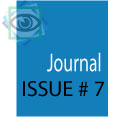International Journal of Small Economies
an International peer-reviewed academic journal on public policy in small economies and nations, island nations and developing countries
Search
Categories
DR. SHAMIMA HAQUE
haqueshamima@yahoo.co.in
Vol. 07, No. 01, Year 2022, Pages 1-7
ABSTRACT
The migrant population of the Maldives makes up one-third of the island’s population, with Indian and Bangladeshi migrants forming the bulk of the migrant population. Over one-third of the migrants are undocumented, and local and international sources have reported frequent discrimination and violation of rights. Hence, this study explores the levels of acceptance by the Maldivian community towards the Public interest groups gained substantial impetus and widespread consideration among the academicians and professionals in the arena of public policy in particular, and typically include peoples’ groups functioning at local, regional, national and global levels (Edwards & Hulme, 1995; Lewis, 2001). Scholars and policy makers have been systematically analyzing this rather complex and ambiguous “citizen organizations”; and in spite of “blurred boundaries” is conclusively distinct from governmental institutions and profit-making business houses; and hence has been an enthralling domain of research (Lewis, 2003). Such groups primarily operate to empower the relegated section of the society and non-governmental organizations (NGOs) constitute the prominent public interest group.
Keywords: NGO, Organizations, India, Non-Governmental Organization (NGO)
Download the paper (PDF):
Revisiting NGO – The ‘Third Sector’ Organizations in India
Dr. Shamima Haque
Vol. 07, No. 01, Year 2022, Pages 1-7
Trackbacks
There are no trackbacks on this entry.


Comments
There are no comments on this entry.